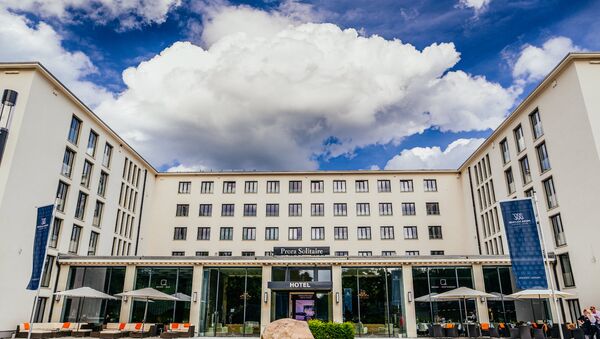Germany' Nazis ordered the construction of a huge holiday sea complex with the capacity of hosting 20,000 people in the 1930s.
The project was built from 1936 to 1939 and was supposed to become a major destination for Germans to spend their vacations, but these aspirations failed to materialize as construction had to be stopped during WWII.
During the war, Prora's buildings were used by the DDR and USSR soldiers as barracks. After the withdrawal of the military forces, the buildings were mostly abandoned.
READ MORE: Explore Top-Five Popular Winter Holiday Destinations in Russia (PHOTOS)
Nowadays, the complex is reviving its past glory and today's Prora is considered one of the largest tourism projects in Europe.
"Prora is a curse and a blessing at the same time," complex director Kai Gardeja told Sputnik Germany. "On the one hand, there is the curse of the past and a huge historical burden. But shaping the future is a blessing. It's one of the biggest tourism projects ever, and we're just getting started," he added.
According to the tourism expert, investments into the holiday resort at the Baltic Sea have reached a total of 500 to 700 million euros.
The initiative has not been without its fair share of controversy. On the one hand, German residents are concerned about the complex' historical past, and on the other — they are fond of the island of Rügen as a nice place to spend their holidays.
"We are on the way to finding a 'golden path'. Tourists and residents will have to explore this place," Gardeja said.
Answering Sputnik's question about opposition to the initiative among German residents, Gardeja admitted "yes." But he added that there are also those excited about the fact that "the place has finally been liberated" and is being used "non-politically."
READ MORE: Five Facts About Legendary Soviet 'Artek' Summer Camp in Crimea
According to Gardeja, international interest in the complex is also very high, not least because of Prora's history.
"We enjoy incredible popularity, primarily in the US, as well as in Sweden, Denmark, France, Italy and in the Asian market," the complex director said.
Gardeja believes that Prora will need about five to ten years to become one of the top tourist resorts worldwide.
In his opinion, improving the reputation abroad "will contribute to an increasingly positive perception of the complex" on German soil as well.


